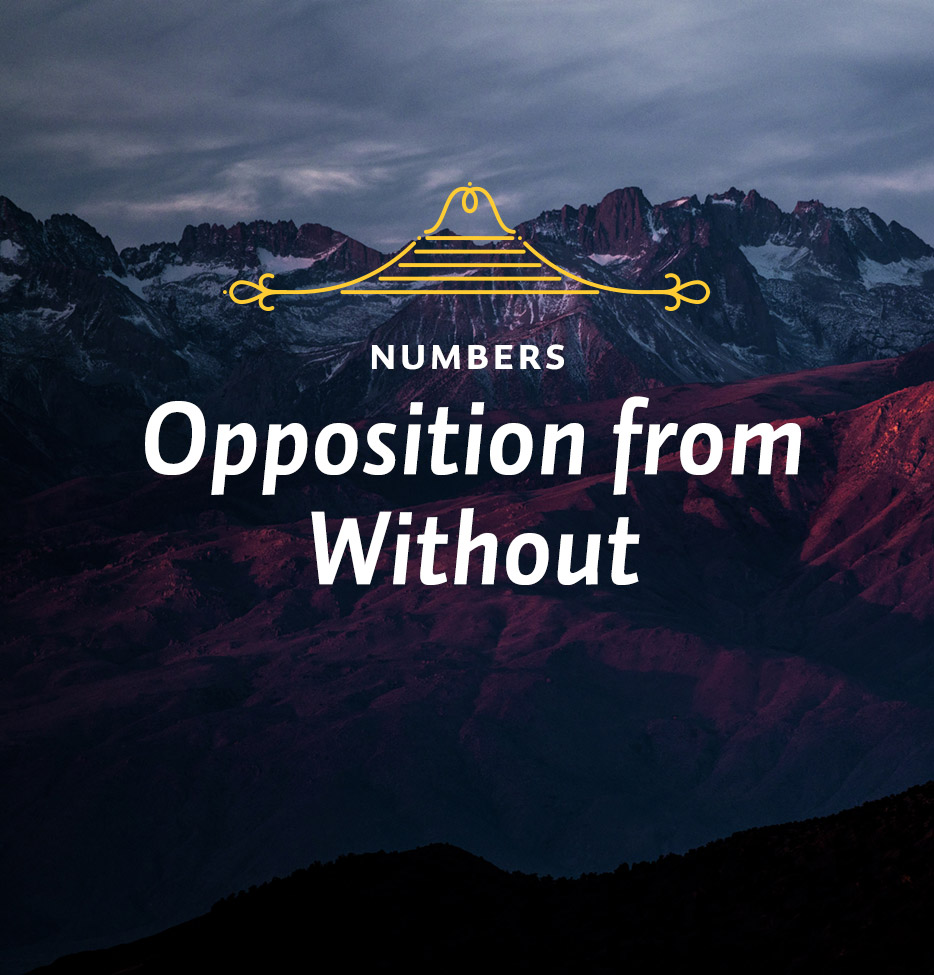The second oracle is given in Numbers 23:13-26. Kings don’t easily give up, and Balak’s not about to give up. So he tries another tactic. He thinks that maybe he has gotten Balaam in the wrong place. He’s at a place where he could see all the mass of the people. Maybe a different site with a different view will produce a different result. So Balak takes him up to the top of Mount Pisgah where, from this vantage point, he only sees a part of the Hebrew people. Just as they did before the first oracle, they again offer sacrifices. But in spite of the change of location, the sacrifices, and the wishful thinking of the king, the result is unchanged.
The oracle begins, “God is not a man that he should lie, or a son of man that he should change his mind.” Balak had called Balaam to curse the people, but God had determined they would be blessed, and so they are going to be blessed. Nothing the king of Moab does or the prophet does is going to get God to change His mind.
This second oracle goes beyond the first in two ways. For one, like the theme of the first oracle, God is said to have blessed His people. But here in the second oracle, He is said not only to have blessed them, but even to be dwelling in their midst. That was a very important aspect of what happened at Sinai. The people built the tabernacle, and God, symbolized by that great shekinah cloud of glory, came and actually dwelt within their camp.
Second, this second oracle extended into the future. The first oracle said that God has blessed these people, and the second oracle adds that God is going to keep on blessing them. Therefore, no armies, nor sorceries, nor divinations are going to be able to stand against the Hebrew people. If we would put this is theological language, we would say that the first oracle has to do with their divine election. God set His favor upon them and called them. The second oracle has to do with their perseverance. God who has begun a good work in them is going to keep on perfecting it until the end.
To the reader’s amusement, the dismay of the king seems to be growing. Israel has now been blessed twice. He called Balaam to curse them, and now he is at two blessings! It would be best if he said nothing, and so the king says, “Neither curse them at all nor bless them at all!” (23:25). But as we say, the fat’s in the fire and Balak cannot do anything about it.
The third oracle occurs in Numbers 23:27-24:14. Balaam follows the king’s instructions, building altars and offering sacrifices. But by now, Balaam is beginning to see that this cause is absolutely hopeless. So in a certain sense he gives himself up to the Hebrew God. We’re told here for the first time in the story that the Spirit of the Lord comes upon him (see 24:2). Up to this point, he had been guided in what he said. But now the Spirit of the Lord comes upon him, and the result is a truly prophetic utterance concerning the future.
Balaam’s most specific prophecy says the Israelite king will be greater than Agag (see 24:7). Agag, a ruler of the Amalekites, would go on to be defeated by King Saul a few hundred years in the future. Some scholars don’t like that, believing that such prophecies made hundreds of years earlier don’t happen. So they suggest that there was another king by that name. But since Saul was the first king of Israel, this is certainly a genuine prophecy of an event that is going to happen in the distant future.
Once again, Balak is furious at the point of banging his hands together. In frantic, wild exasperation he tells Balaam to get out and go home—and there will be no reward. If Balaam had done what Balak asked, he would have given him lots of gold and silver. But now Balak will not pay anything. He wants Balaam to go before he makes matters even worse. But Balaam doesn’t go.
Balaam’s fourth oracle comes in Numbers 24:15-19. This is a far distant prophecy, as the language makes clear. His prophecy about Saul refers to an event about three hundred years off. But he now says, “I see him, but not now; I behold him, but not near” (v. 17). He is looking far down the road. What he is talking about?
The language is messianic: “A star will come out of Jacob; a scepter will rise out of Israel…A ruler will come out of Jacob and destroy the survivors of the city” (vv. 17, 19). There will be lots of rulers, of course, such as Joshua, judges, and kings. But this isn’t just a ruler, it’s the ruler. This is one who is going to reign upon the throne of David forever. This is how many commentators have rightly understood it. Justin Martyr, one of the early church fathers, said that the shining star that is risen is none other than Jesus Christ.






